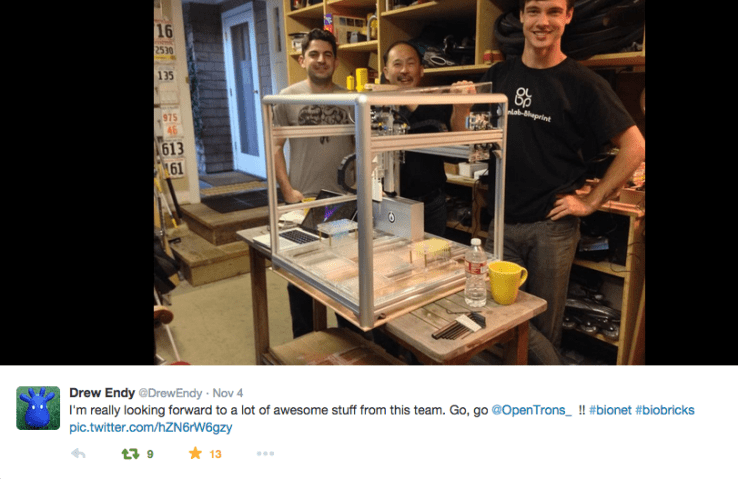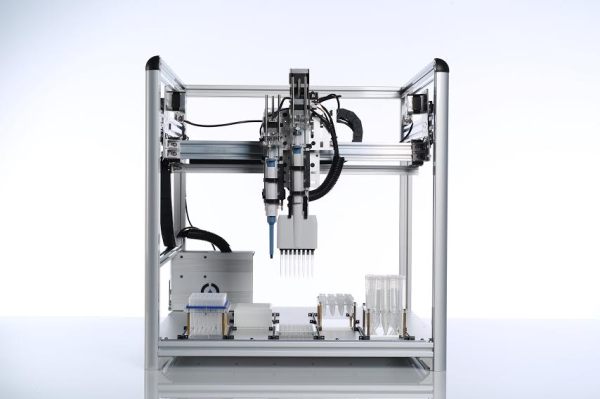Robotics startup OpenTrons has come up with a way it believes will make wet lab experiments faster and cheaper – automation.
Most life science research is still done by hand. This can be a tedious process that OpenTrons hopes to diminish by using robotics and software to complete it.
“Basically, if you’re a biologist you spend all of your time moving tiny amounts of liquid around from vial to vial by hand with a little micro-pipette or you have a $100,000 robot that does it for you. We’re a $3,000 robot,” OpenTrons co-founder Will Canine explained to TechCrunch.
Canine refers to these more expensive machines as ‘mainframe’ machines – or computers that existed before the PC came about. He believes his machine is more like an actual PC.
These older, more expensive machines require engineers to run them on the backend, but Canine says OpenTrons is “democratizing the tools” that allow for sharing protocols. In other words, his $3,000 machine is controlled by your web browser and allows researchers to download protocols from the cloud to run experiments without the need for an engineer to create the code first.

Canine rattled off several use cases for OpenTrons, such as a farmer who wants to engineer crops or scientists developing a new super material in their garage. “These are the people we are building a tool for in the future,” he said.
It’s a similar idea to another YC startup Transcriptic, which is a cloud-based biotech lab in Palo Alto that tests for experimental drugs using robots. But Canine sees that company as more of a partner than a competitor. “We’re the PC and they’re the cloud,” he said.
“One of the biggest bottlenecks for labs, including outsourced labs like Transcriptic, is getting the samples out of the lab into their facility,” Canine said. “So just like you’d deploy your lab software to Amazon Web Services you’d use an OpenTrons to send samples to a Transcriptic cloud lab.”
OpenTrons first launched out of Haxclr8tr in China and ran a successful Kickstarter in 2014 to help build a machine that could insert DNA inside of E. coli. According to Canine, there are more than 50 OpenTrons robots already in operation in private labs and academic institutions since launching.
